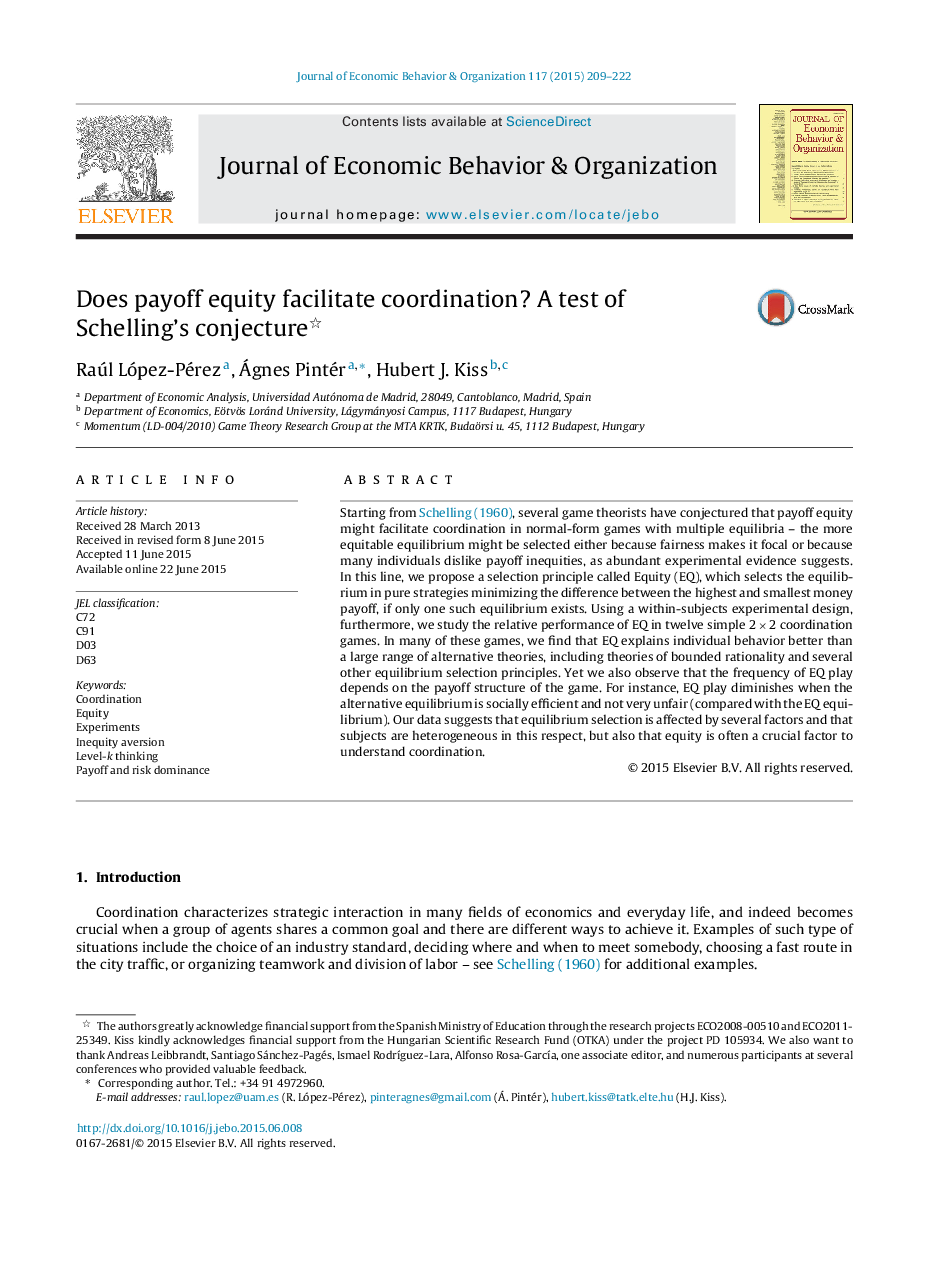| Article ID | Journal | Published Year | Pages | File Type |
|---|---|---|---|---|
| 7243060 | Journal of Economic Behavior & Organization | 2015 | 14 Pages |
Abstract
Starting from Schelling (1960), several game theorists have conjectured that payoff equity might facilitate coordination in normal-form games with multiple equilibria - the more equitable equilibrium might be selected either because fairness makes it focal or because many individuals dislike payoff inequities, as abundant experimental evidence suggests. In this line, we propose a selection principle called Equity (EQ), which selects the equilibrium in pure strategies minimizing the difference between the highest and smallest money payoff, if only one such equilibrium exists. Using a within-subjects experimental design, furthermore, we study the relative performance of EQ in twelve simple 2Â ÃÂ 2 coordination games. In many of these games, we find that EQ explains individual behavior better than a large range of alternative theories, including theories of bounded rationality and several other equilibrium selection principles. Yet we also observe that the frequency of EQ play depends on the payoff structure of the game. For instance, EQ play diminishes when the alternative equilibrium is socially efficient and not very unfair (compared with the EQ equilibrium). Our data suggests that equilibrium selection is affected by several factors and that subjects are heterogeneous in this respect, but also that equity is often a crucial factor to understand coordination.
Related Topics
Social Sciences and Humanities
Economics, Econometrics and Finance
Economics and Econometrics
Authors
Raúl López-Pérez, Ágnes Pintér, Hubert J. Kiss,
